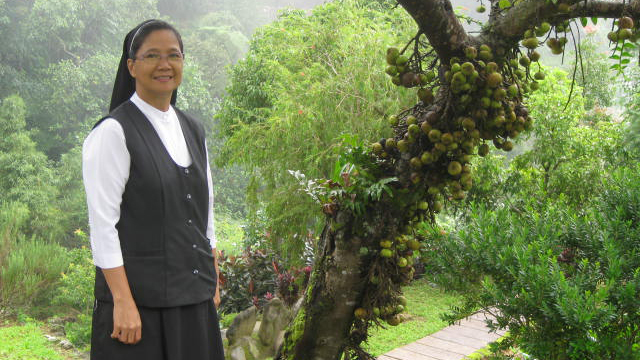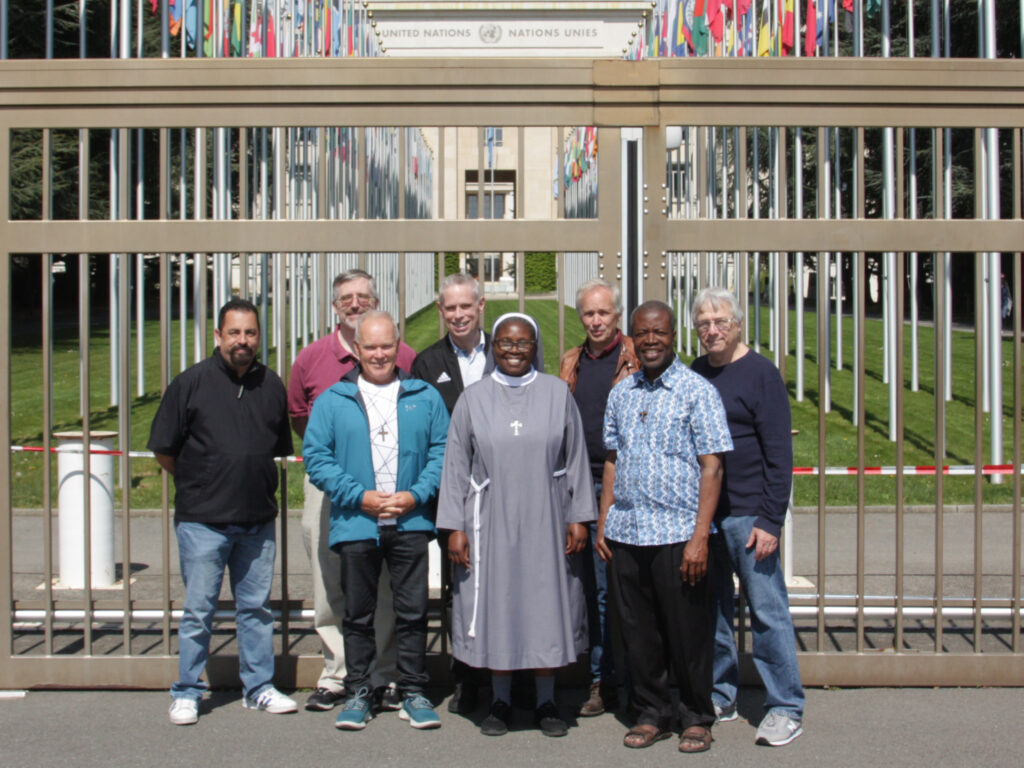Our Story
Our History
Early in their history, the Franciscans were asked to undertake a church-wide consultation. No other religious order, the Pope reasoned, had such widespread connections or deep roots across the world.
Centuries later, Brother Dionysius Mintoff OFM realized that this approach could also be reversed: if the Franciscans are everywhere, why can’t they raise the voices of the marginalized to the powerful?
Sowing the seeds
His idea resonated deeply with the late Elizabeth Cameron of the Sisters of Saint Francis from Clinton, Iowa. In 1982, they wrote a letter to their fellow sisters and brothers suggesting for the first time that the Franciscans should establish a permanent presence at the United Nations.
Their proposal drew on other parts of Franciscan history as well. Francis himself had traveled to the Holy Land and met with the Sultan of Egypt to seek a dialogue. In a letter to the ‘rulers of the people’ Francis wrote afterwards, he reminded them that they too “must render an account before the Lord” – arguably the 13th Century equivalent of calling for accountability.

If the Franciscans are everywhere, why can’t they raise the voices of the marginalized to the powerful?
Laying the foundations
At the time Sister Elizabeth and Brother Dionysius sent their letter, there was a growing realization among Franciscans that the challenges faced by the local community in which they lived weren’t isolated issues. Going to the UN and addressing them at an international level was seen by many as a logical extension of the work already done by the Justice, Peace and Integrity of Creation commissions. An interfamilial committee was formed and tasked to create this new ministry.
The Franciscans were not alone in their ambitions: when the Brothers of Brooklyn raised the idea with UN Assistant Secretary-General Robert Muller, he simply asked, “what took you so long to get here?” Franciscans International was recognized as a non-governmental organization (NGO) by the UN Department of Public Information in 1989, affirming that it had the promise, commitment, and means for sustained work at the UN.

The UN Assistant Secretary General simply asked, “what took you so long to get here?”
A common ministry
FI opened its first office in New York in 1990. Five years later, FI was granted ‘General Consultative status’ – at the time Category I – with the UN’s Economic and Social Council. This status acknowledges that an organization represents large segments of society on a wide range of issues. In 1997, FI established its second office in Geneva, where most of the UN’s human rights work now takes place. A third office was opened in Bangkok in 2008 to better coordinate regional activities in Asia-Pacific.
In 1999, the Conference of the Franciscan Family (CFF) approved a new charter formalizing its role as the organization’s official sponsor and declared that FI represents the Catholic Franciscan family at the UN. A new ecumenical dimension was added in 2005, when the Anglican Society of Saint Francis was given representation on FI’s International Board of Directors.
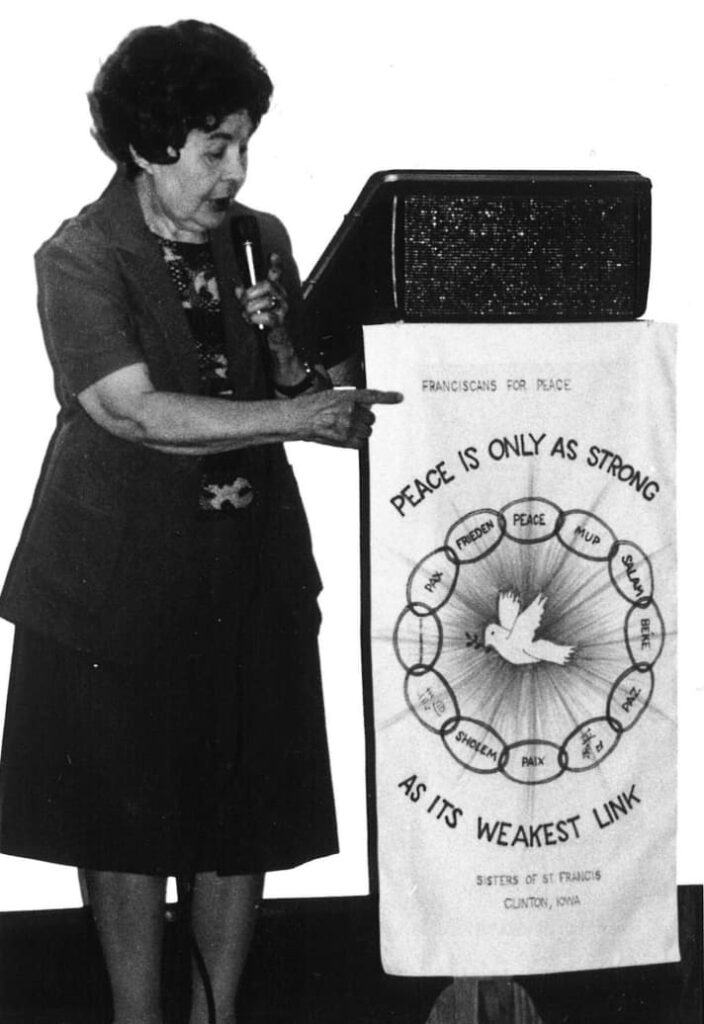
Meeting new challenges
FI continues to grow and evolve as an organization to make sure it effectively addresses the concerns of the global Franciscan family. In 2013, as part of a general restructuring, the decision was made to close the Bangkok office to reinforce its position as a bridge between the grassroots and the UN in New York in Geneva. Here, we are the Franciscan voice at the United Nations.
Our History
Early in their history, the Franciscans were asked to undertake a church-wide consultation. No other religious order, the Pope reasoned, had such widespread connections or deep roots across the world.
Centuries later, Brother Dionysius Mintoff OFM realized that this approach could also be reversed: if the Franciscans are everywhere, why can’t they raise the voices of the marginalized to the powerful?
Sowing the seeds
His idea resonated deeply with the late Elizabeth Cameron of the Sisters of Saint Francis from Clinton, Iowa. In 1982, they wrote a letter to their fellow sisters and brothers suggesting for the first time that the Franciscans should establish a permanent presence at the United Nations.
Their proposal drew on other parts of Franciscan history as well. Francis himself had traveled to the Holy Land and met with the Sultan of Egypt to seek a dialogue. In a letter to the ‘rulers of the people’ Francis wrote afterwards, he reminded them that they too “must render an account before the Lord” – arguably the 13th Century equivalent of calling for accountability.
Laying the foundations
At the time Sister Elizabeth and Brother Dionysius sent their letter, there was a growing realization among Franciscans that the challenges faced by the local community in which they lived weren’t isolated issues. Going to the UN and addressing them at an international level was seen by many as a logical extension of the work already done by the Justice, Peace and Integrity of Creation commissions. An interfamilial committee was formed and tasked to create this new ministry.
The Franciscans were not alone in their ambitions: when the Brothers of Brooklyn raised the idea with UN Assistant Secretary-General Robert Muller, he simply asked, “what took you so long to get here?” Franciscans International was recognized as a non-governmental organization (NGO) by the UN Department of Public Information in 1989, affirming that it had the promise, commitment, and means for sustained work at the UN.
A common ministry
FI opened its first office in New York in 1990. Five years later, FI was granted ‘General Consultative status’ – at the time Category I – with the UN’s Economic and Social Council. This status acknowledges that an organization represents large segments of society on a wide range of issues. In 1997, FI established its second office in Geneva, where most of the UN’s human rights work now takes place. A third office was opened in Bangkok in 2008 to better coordinate regional activities in Asia-Pacific.
In 1999, the Conference of the Franciscan Family (CFF) approved a new charter formalizing its role as the organization’s official sponsor and declared that FI represents the Catholic Franciscan family at the UN. A new ecumenical dimension was added in 2005, when the Anglican Society of Saint Francis was given representation on FI’s International Board of Directors.
Meeting new challenges
FI continues to grow and evolve as an organization to make sure it effectively addresses the concerns of the global Franciscan family. In 2013, as part of a general restructuring, the decision was made to close the Bangkok office to reinforce its position as a bridge between the grassroots and the UN in New York in Geneva. Here, we are the Franciscan voice at the United Nations.

If the Franciscans are everywhere, why can’t they raise the voices of the marginalized to the powerful?

The UN Assistant Secretary General simply asked, “what took you so long to get here?”

The Franciscan Family
Franciscans International is the only common ministry of the Conference of the Franciscan Family.
Franciscans are a large and diverse family. Since the time of Francis and Clare, sisters and brothers throughout history have found different ways of shaping their lives and communities to “observe the Holy Gospel.”
Formally, these different branches and traditions come together in the Conference of the Franciscan Family (CFF), which is made up of the Ministers General of the First Orders, the Third Order Regular, and the Secular Franciscan Order, and the President of the International Franciscan Conference of the Sisters and Brothers of the Third Order Regular.
The CFF sponsors Franciscans International as its official representation at the United Nations.
It also appoints FI’s International Board of Directors, which likewise reflects the different Franciscan branches. Although they are not members of the CFF, the Anglican Franciscans are part of FI and its International Board of Directors.
- Order of Friars Minor (OFM)
- Order of Friars Minor Capuchin (OFMCap)
- Order of Friars Minor Conventual (OFMConv)
- Third Order Regular of Saint Francis (TOR)
- International Franciscan Conference of the Sisters and Brothers of the Third Order Regular
- Secular Franciscan Order (OFS)
- Society of Saint Francis (SSF/CSF/TSSF)
The Franciscan Family
Franciscans are a large and diverse family. Since the time of Francis and Clare, sisters and brothers throughout history have found different ways of shaping their lives and communities to “observe the Holy Gospel.”
Formally, these different branches and traditions come together in the Conference of the Franciscan Family (CFF), which is made up of the Ministers General of the First Orders, the Third Order Regular, and the Secular Franciscan Order, and the President of the International Franciscan Conference of the Sisters and Brothers of the Third Order Regular.
The CFF sponsors Franciscans International as its official representation at the United Nations.
It also appoints FI’s International Board of Directors, which likewise reflects the different Franciscan branches. Although they are not members of the CFF, the Anglican Franciscans are part of FI and its International Board of Directors.
- Order of Friars Minor (OFM)
- Order of Friars Minor Capuchin (OFMCap)
- Order of Friars Minor Conventual (OFMConv)
- Third Order Regular of Saint Francis (TOR)
- International Franciscan Conference of the Sisters and Brothers of the Third Order Regular
- Secular Franciscan Order (OFS)
- Society of Saint Francis (SSF/CSF/TSSF)
Franciscans International is the only common ministry of the Conference of the Franciscan Family.
Franciscanism & Human Rights
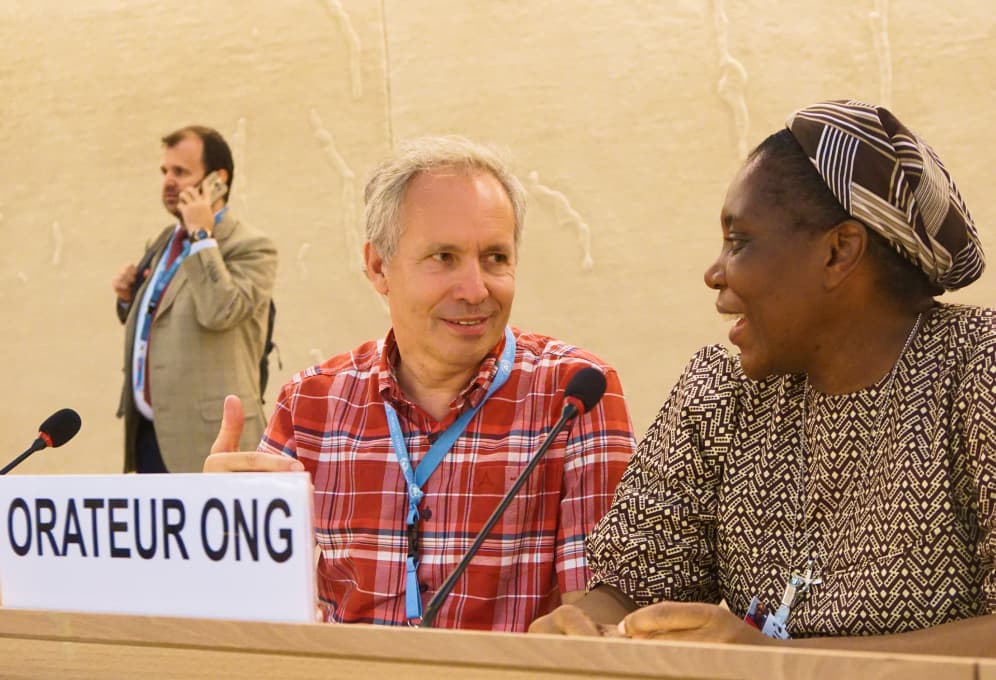
The United Nations is a place where we can gather, overcome our differences, seek accountability, and craft solutions to shared challenges.
Inspired by the legacy of Francis and Clare of Assisi, countless people throughout history – both lay and religious – have committed themselves to serve and work with marginalized communities and those living in poverty
Today, their efforts extend to the United Nations, where they are represented by Franciscans International. Our work is founded on the tradition and spirituality of both Catholic and Anglican Franciscans and their deep resonance with the Universal Declaration on Human Rights.
The foundations of our work
The Catholic Social Teaching highlights the dignity of a person as the basis for the promotion and defense of their inalienable rights. Given the teachings of the Church, the promotion and protection of human rights is a religious imperative for all Catholics.
In the Anglican tradition, the gospel is not just the proclamation of individual redemption and renewal, but also of the renewal of society – the ending of injustice and the restoration of the right relationship with God, between human beings, and between humanity and creation.
As Franciscans, our work on human rights also draws on our charism and values of minority, fraternity, justice, reconciliation, peace, and the care for creation. Our values transverse each other. In responding to the challenges of our time we see, judge, and act to protect and advocate human dignity and environmental justice.
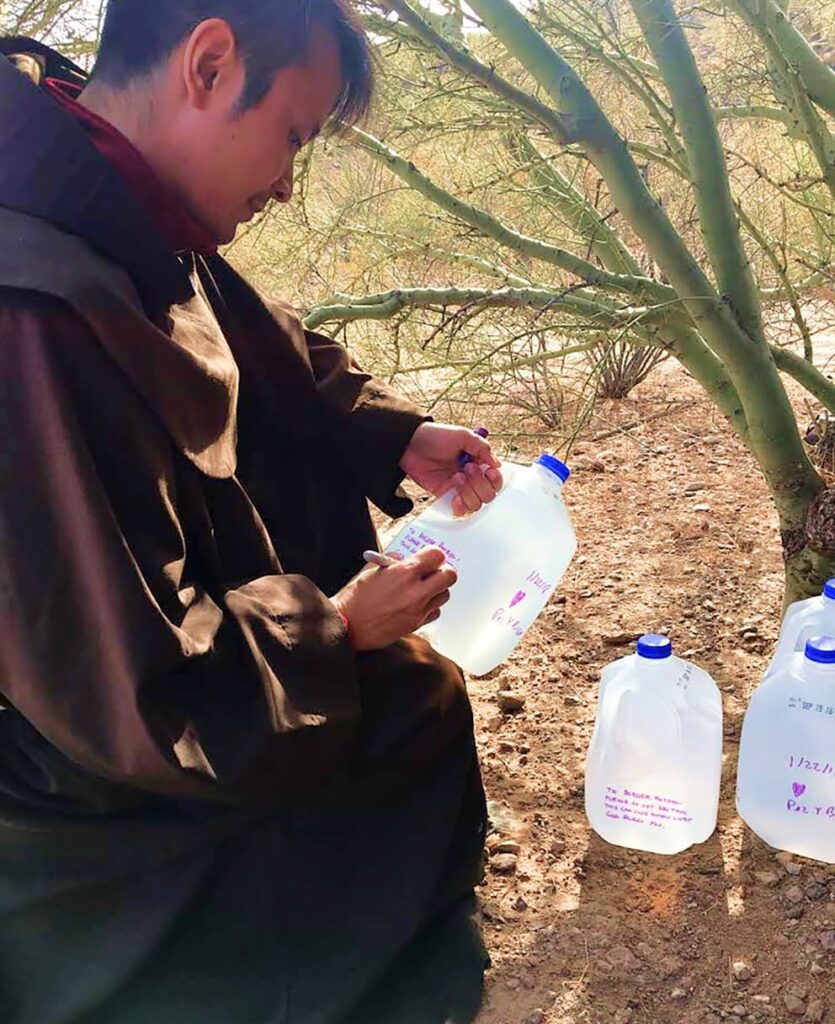
To be Franciscan – to be ‘voluntarily poor’ as a ‘lesser’ brother or sister – is to be in a relationship with, rather than to stand apart from, those who experience oppression, marginalization, and injustice.
Our spirituality and charism
The pursuit of social justice, peace, and care for creation has always been a priority for the Franciscans. This flows naturally from the lives of Saint Francis and Saint Clare, and the movement they inspired in pursuit of the Gospel life.
Francis’ love of Jesus drove him to public preaching and to take on the troubles of others. He reached out to the lepers, the poor, and the marginalized – recognizing Christ’s presence in them. Francis proclaimed God’s love and peace, seeking reconciliation between warring parties. He perceived God’s love and beauty in all of creation and his life was marked by intense religious experiences, drawing him deeper into the mystery of God.
The encounter between Francis and the leper is understood as one of the events that marked the beginning of his internal change and conversion. By overcoming his sense of revulsion and stereotypes towards the outcast leper, Francis resolved to live in solidarity with the poor, the sick, and the destitute.
Attending the lepers – a radical action at the time – was a defining moment in Francis’ spiritual growth and understanding of his own mission. By embracing them, Francis realized that human dignity must always be respected and protected. This was also the first seedling of what became his understanding of the common brother- and sisterhood with all creation, which he famously described in the Canticle of Creatures.
When Francis wrote this canticle eight centuries ago, he was not necessarily responding to an environmental crisis. For him, this was about cosmic fraternity – the idea that we are all sisters and brothers created by God and that we have a moral responsibility to be stewards of the environment. As Franciscans, taking care of the environment and pursuing climate justice is our charism and spirituality. It is our way of life.
This understanding of universal fraternity and respect for human dignity is also reflected in Francis’ pursuit of peace, non-violence, and dialogue. In 1219, Francis traveled to Egypt, where he attempted to broker a peace between Muslims and Christians during the fifth crusade.
The Franciscan and Clarian insistence on minoritas is joyfully and dynamically lived out in active engagement with the world to affect a mutual transformation. To be Franciscan – to be ‘voluntarily poor’ as a ‘lesser’ brother or sister – is to be in a relationship with, rather than to stand apart from, those who experience oppression, marginalization, and injustice.
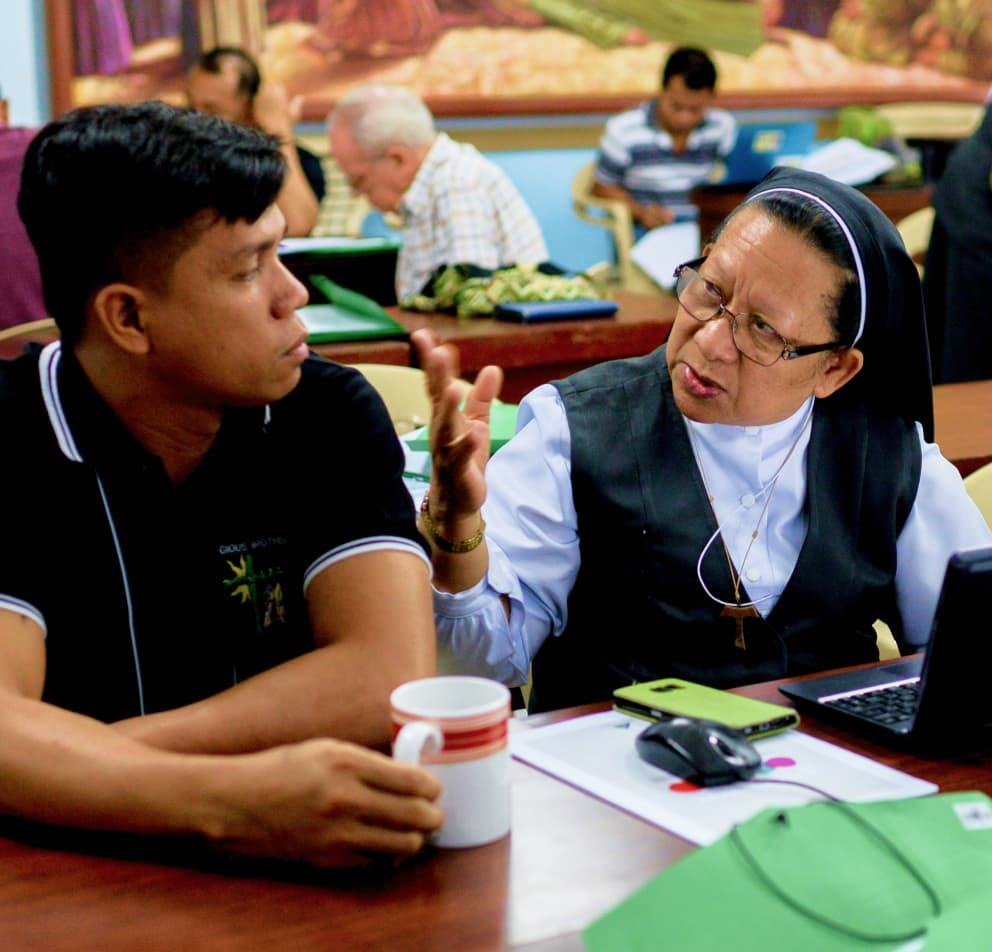
“To protect and promote human rights is a modern way to articulate the Franciscan conviction that each and every person is sacred.”
Our values and the United Nations
Peace, dignity, and equality are also at the core of the Universal Declaration on Human Rights. At the UN, this document is the foundation of a unique system of international standards and procedures. This system helps us to seek justice for violations and build a better world for all. Increasingly, there is a recognition that the preservation of our common home is a fundamental part of this endeavor.
The Franciscan dedication to social justice and the sacred dignity of every person dovetails closely with these values and standards. The UN is a place where we can gather, overcome our differences, seek accountability, and craft solutions to shared challenges. Franciscans are there to build bridges with communities at the grassroots and to amplify the voices of those that are not heard. Using human rights as our tool, we strive toward a fairer and more equal world.
Franciscanism & Human Rights
Inspired by the legacy of Francis and Clare of Assisi, countless people throughout history – both lay and religious – have committed themselves to serve and work with marginalized communities and those living in poverty
Today, their efforts extend to the United Nations, where they are represented by Franciscans International. Our work is founded on the tradition and spirituality of both Catholic and Anglican Franciscans and their deep resonance with the Universal Declaration on Human Rights.
The foundations of our work
The Catholic Social Teaching highlights the dignity of a person as the basis for the promotion and defense of their inalienable rights. Given the teachings of the Church, the promotion and protection of human rights is a religious imperative for all Catholics.
In the Anglican tradition, the gospel is not just the proclamation of individual redemption and renewal, but also of the renewal of society – the ending of injustice and the restoration of the right relationship with God, between human beings, and between humanity and creation.
As Franciscans, our work on human rights also draws on our charism and values of minority, fraternity, justice, reconciliation, peace, and the care for creation. Our values transverse each other. In responding to the challenges of our time we see, judge, and act to protect and advocate human dignity and environmental justice.
Our spirituality and charism
The pursuit of social justice, peace, and care for creation has always been a priority for the Franciscans. This flows naturally from the lives of Saint Francis and Saint Clare, and the movement they inspired in pursuit of the Gospel life.
Francis’ love of Jesus drove him to public preaching and to take on the troubles of others. He reached out to the lepers, the poor, and the marginalized – recognizing Christ’s presence in them. Francis proclaimed God’s love and peace, seeking reconciliation between warring parties. He perceived God’s love and beauty in all of creation and his life was marked by intense religious experiences, drawing him deeper into the mystery of God.
The encounter between Francis and the leper is understood as one of the events that marked the beginning of his internal change and conversion. By overcoming his sense of revulsion and stereotypes towards the outcast leper, Francis resolved to live in solidarity with the poor, the sick, and the destitute.
Attending the lepers – a radical action at the time – was a defining moment in Francis’ spiritual growth and understanding of his own mission. By embracing them, Francis realized that human dignity must always be respected and protected. This was also the first seedling of what became his understanding of the common brother- and sisterhood with all creation, which he famously described in the Canticle of Creatures.
When Francis wrote this canticle eight centuries ago, he was not necessarily responding to an environmental crisis. For him, this was about cosmic fraternity – the idea that we are all sisters and brothers created by God and that we have a moral responsibility to be stewards of the environment. As Franciscans, taking care of the environment and pursuing climate justice is our charism and spirituality. It is our way of life.
This understanding of universal fraternity and respect for human dignity is also reflected in Francis’ pursuit of peace, non-violence, and dialogue. In 1219, Francis traveled to Egypt, where he attempted to broker a peace between Muslims and Christians during the fifth crusade.
The Franciscan and Clarian insistence on minoritas is joyfully and dynamically lived out in active engagement with the world to affect a mutual transformation. To be Franciscan – to be ‘voluntarily poor’ as a ‘lesser’ brother or sister – is to be in a relationship with, rather than to stand apart from, those who experience oppression, marginalization, and injustice.
Our values and the United Nations
Peace, dignity, and equality are also at the core of the Universal Declaration on Human Rights. At the UN, this document is the foundation of a unique system of international standards and procedures. This system helps us to seek justice for violations and build a better world for all. Increasingly, there is a recognition that the preservation of our common home is a fundamental part of this endeavor.
The Franciscan dedication to social justice and the sacred dignity of every person dovetails closely with these values and standards. The UN is a place where we can gather, overcome our differences, seek accountability, and craft solutions to shared challenges. Franciscans are there to build bridges with communities at the grassroots and to amplify the voices of those that are not heard. Using human rights as our tool, we strive toward a fairer and more equal world.

The United Nations is a place where we can gather, overcome our differences, seek accountability, and craft solutions to shared challenges.

To be Franciscan – to be ‘voluntarily poor’ as a ‘lesser’ brother or sister – is to be in a relationship with, rather than to stand apart from, those who experience oppression, marginalization, and injustice.

“To protect and promote human rights is a modern way to articulate the Franciscan conviction that each and every person is sacred.”
Franciscans at the UN
Franciscans International works with the United Nations in various ways to ensure that the testimonies of Franciscans are heard by the international community.
One of them is to invite sisters and brothers to join us in Geneva or New York. Here, we can help to facilitate meetings with diplomats, UN officials, and other stakeholders.
With the support of FI, they can also directly speak during UN sessions to raise the cases of the marginalized communities they work with.

Franciscans at the UN
Franciscans International works with the United Nations in various ways to ensure that the testimonies of Franciscans are heard by the international community.
One of them is to invite sisters and brothers to join us in Geneva or New York. Here, we can help to facilitate meetings with diplomats, UN officials, and other stakeholders.
With the support of FI, they can also directly speak during UN sessions to raise the cases of the marginalized communities they work with.

Spiritual Reflections
Franciscan values dovetail closely with those enshrined in the Universal Declaration on Human Rights. In these publications, we explore the roots and spiritual dimensions of our work at the United Nations.
Showing 1 - 6 of 9
- 1
- 2
-

Be praised for our Sister, Mother Earth
On Mother Earth Day 2023, Brother Christopher John SSF explores the concept of environmental justice.- 22/04/2023
-
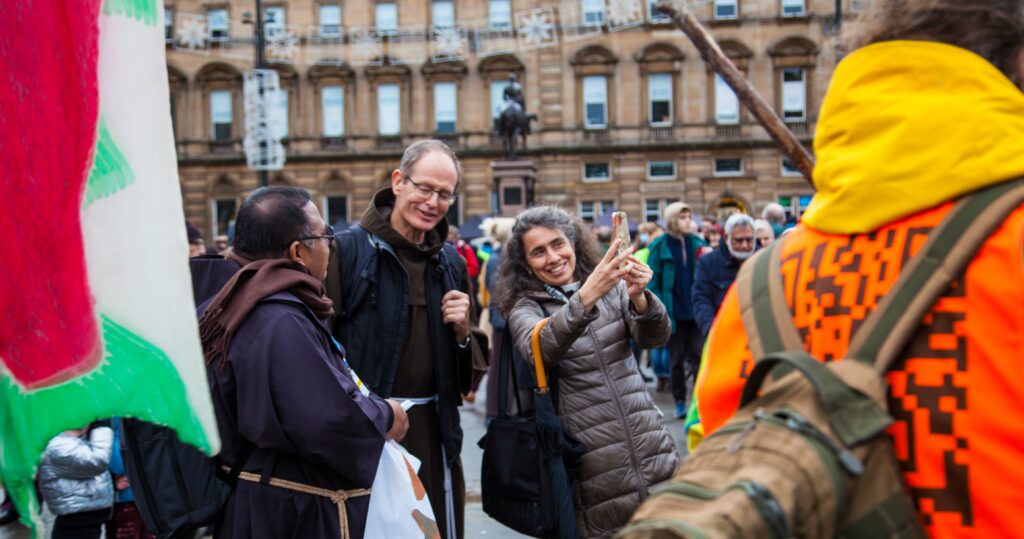
Defending a Healthy Planet: Franciscans at the UN Climate Conference
The COP26 was Glasgow will be a pivotal moment for the preservation of our common home and Franciscans are present ...- 05/11/2021
-

Sister Water calls us to the people of El Salvador
In March, Fray René Flores OFM delivered a statement to the Human Rights Council calling on the governments of El ...- 30/03/2021
-
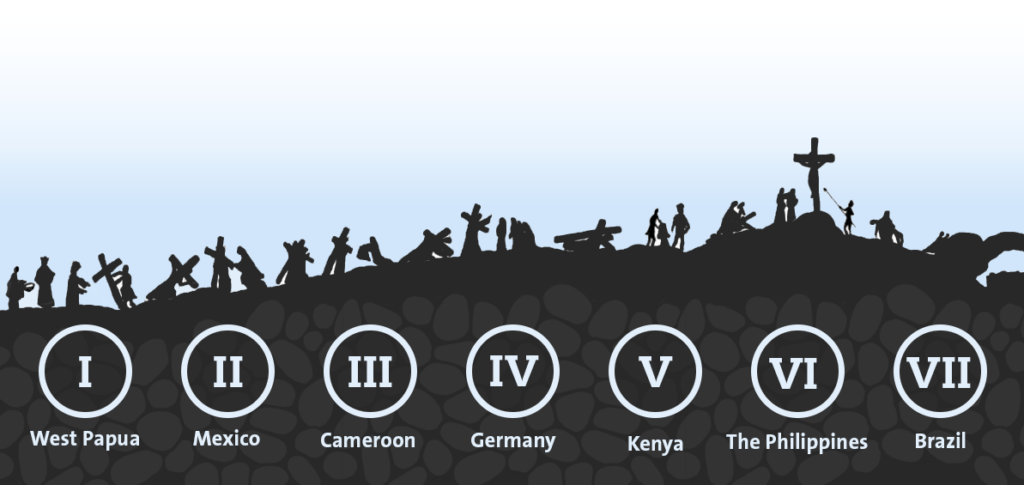
Lenten Reflections: Social justice and stages of the cross
Sisters and brothers from across the globe came together to explore the different dimensions of their social justice work, the ...- 25/03/2021
-

Franciscan Action at the UN: The responsibility of business on human rights:
Throughout the world, we are witnessing the devastating impact of extractive industries on the communities we live in. It is ...- 13/11/2020
-
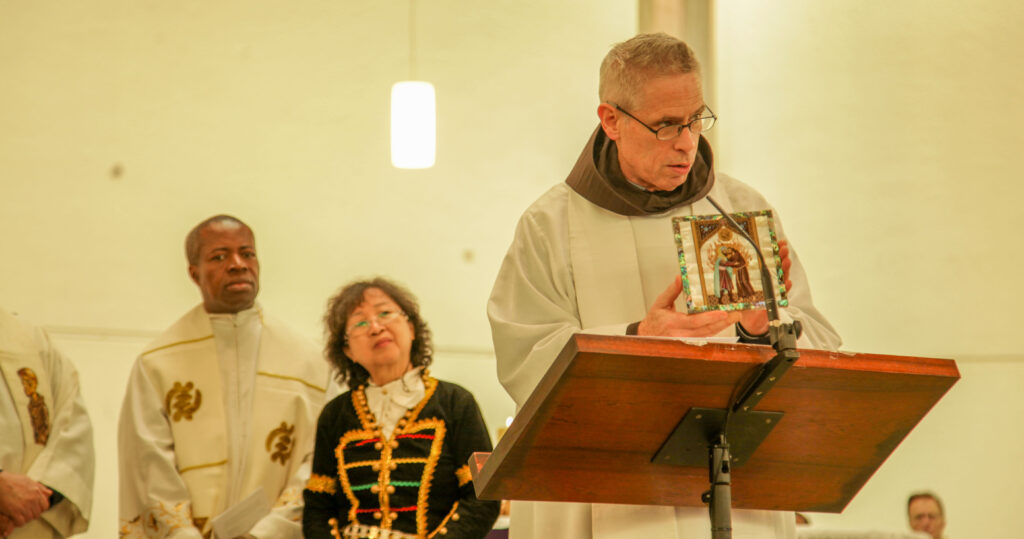
A Franciscan voice at the United Nations
Brother Michael Perry OFM explains what inspired the Franciscan Family to establish a presence at the United Nations.- 08/05/2020
Showing 1 - 6 of 9
- 1
- 2


Support Us
You can help Franciscan sisters and brothers across the world to take their struggle to the United Nations. Support our work today with a donation!

Subscribe
Would you like to become part of Franciscan action at the United Nations?
Sign up for our newsletter and get the latest developments on our common struggle for justice and human rights.
"*" indicates required fields

